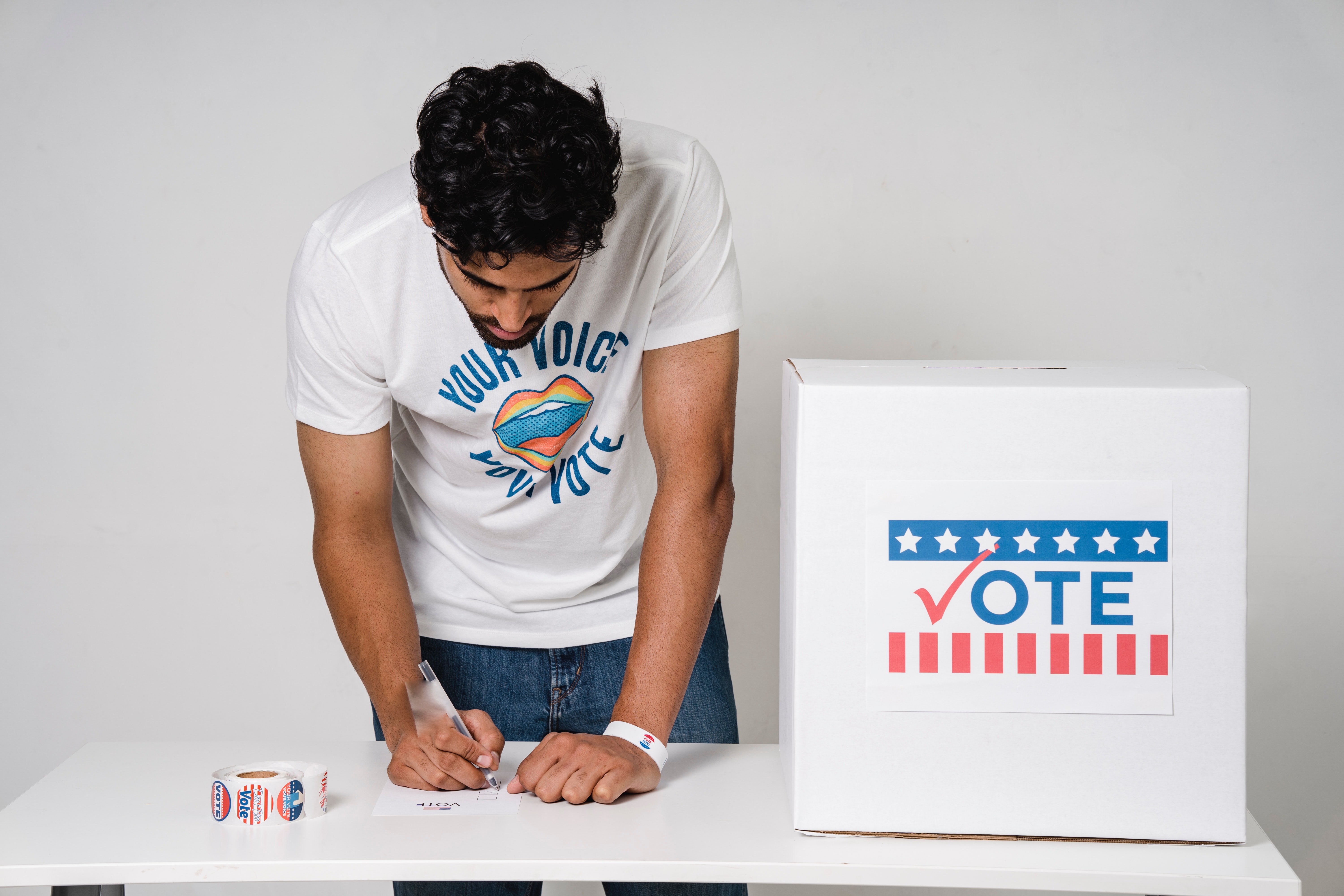- 14 3402-5578
- Rua Hygino Muzy Filho, 737, MARÍLIA - SP
- contato@latinoobservatory.org
 Foto de Sora Shimazaki: https://www.pexels.com/pt-br/foto/foto-de-um-homem-escrevendo-seu-voto-em-um-papel-5926264/
Foto de Sora Shimazaki: https://www.pexels.com/pt-br/foto/foto-de-um-homem-escrevendo-seu-voto-em-um-papel-5926264/
The 2022 U.S. midterm elections bear an increase in Latino turnout that has secured some major contests for Democrats and Republicans, including in traditional Latino population centers such as California and Florida, as well as emerging regions.
Latinos accounted for about 1 in 10 of the votes cast during the 2022 midterm elections, according to a study conducted by NALEO. About 35 million Latinos were eligible to vote, according to the Pew Research Center, which makes Latinos the second-largest racial/ethnic group of voters, representing 14% of the electorate in the United States.
According to the Latino Rebels publication, “On the eve of Election Day, 29 percent of Latino voters had already cast their ballots, and Latinos came out the day of at or above the levels seen in 2018 in races across the country. Their support for Democrats in key states kept pace or exceeded 2020 numbers”.
As we pointed out earlier, inflation and the increase in the cost of living were the most important issues among Latino voters, followed by women's reproductive and abortion rights. Improving wages and creating more jobs was ranked as the third most important issue, while addressing mass shootings and gun safety policy ranked fourth.
“Latino voters also came to the polls in droves to support other progressive causes such as allowing Medicare to negotiate lower prices on prescription drugs and passing a new Voting Rights Act”, according to Latino Rebels.
“More than 80 percent of Latinos wanted to see legislation to protect DREAMers, more than 90 percent wanted to see legislation to secure their right to vote, and more than 70 percent were concerned about candidates that failed to speak against extremism, according to National Latino Civic Engagement Table (NLCET), which is a leading nonprofit advocacy and civil rights organization”.
Overall, this year’s Latino voter turnout reflected the way they have voted in previous elections, with two-thirds voting Democrat.
“All of this should put to rest the myth that Latino voters have magically turned to Republicans—the numbers simply do not bear out”, said Kenny Sandoval, vice president of campaigns and partnerships at Voto Latino. “If Republicans are going to talk to Latinos, they need to talk about our issues”.
“With voter intimidation, deterrence, misinformation, and disinformation on the rise since 2016, many political observers are understandably concerned that Latino voting rights could be suppressed”, the publication points out.
“In the last two years we’ve had states that have enacted unnecessary efforts to make it more difficult to vote in response to the non-existent threat of voted fraud”, Thomas Saens, president of the Mexican-American Legal Defense and Education Fund (MALDEF).
Saenz specifically pointed to Arizona, Georgia and Texas as states where MALDEF is fighting legislation that would prevent Latino voters from voting in representative numbers.
“As anti-immigrant and anti-Latino policies and
rhetoric grow in the Republican Party, we need more Latino voices at all
government levels to ensure our community’s voice is heard and the issues that
matter to us are addressed”, said Latino Victory Project’s managing director,
Yvonne Gutierrez, to Latino Rebels.











